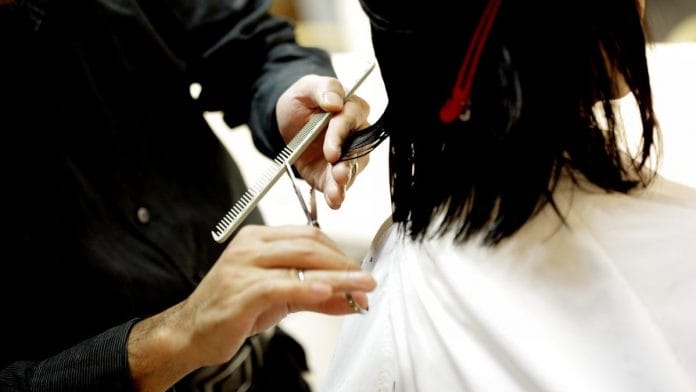Beauty salons are not essential, the Indian government has said in its guidelines on lockdown restrictions. And just like that, the neighbourhood aunties and parlour didis have been left out of the low-touch economy.
There was a time when the beauty industry was considered safe and recession proof. Even during the Great Depression, people continued to pay for salon visits. Make-up has been continually bought, and haircuts continually sought no matter how bad the economy is.
But in a post-coronavirus world, how will services centred on personalised relationships and physical contact practice social distancing?
A four-hand massage at a fancy spa was once the most sought after luxury, but at a time when people can’t bring themselves to touch their own faces, a body massage by someone else is a far-fetched idea. Other service-oriented businesses like the fitness industry have transitioned to online classes and restaurants are delivering food at home. But how do hairdressers, nail technicians, massage therapists and make-up artists work from home?
Also read: Hair rebellion — from Kautilya, Omar Abdullah to people in Covid lockdown
Services will have to wait
In India, although the government is slowly removing lockdown restrictions for private enterprises, the ministry of home affairs has clarified that salons and spas must remain shut until the lockdown is lifted. In the UK, government officials say that hairdressers may not be allowed to open shops for another six months.
In Australia, Prime Minister Scott Morrison announced that nail salons, tanning, waxing and most other beauty services will remain closed, but hair salons can open with a 30-minute per client time restriction. This time span was criticised as being unfeasible and highly gendered because only men’s haircuts take 30 minutes or less, after which the order was amended.
Overall, there is a growing unease among people over being unable to avail services that were once taken for granted. Americans recently took to the streets to demand the right to get a haircut, while the Texas mayor snuck out of her home to get her nails done at her trusted salon and was then subjected to an investigation by the Texas Department of Licensing and Regulation.
Part of a growing ‘black market’ of home beauty services, one hair dresser in the US even remarked that he felt “like a criminal” for violating lockdown rules in order to keep working and providing himself an income.
Also Read: Braless, hairy and brown — coronavirus lockdown is our chance to change beauty standards
Fears are legitimate
In India, at-home beauty services provided by big players like Urban Clap or neighbourhood parlour didis have for long been part of the ecosystem. But will we trust them in this climate of pandemic-induced paranoia? The fear, of course, is on both ends. Even beauty service providers need protection, and not only the financial kind.
Gloves and hand sanitisers can only do so much to keep at bay legitimate fears during facials, massages, pedicures and manicures?
There is no denying that most of us are itching to get our bangs trimmed, upper lips threaded and limbs waxed during this quarantine period. But while we debate how safe it is for us to keep staying groomed, there is an entire industry majorly comprising unorganised and unregulated small women-run ventures that is afraid of how the next few months will pan out.
Views are personal.






